
When I first started shooting pistols, the idea of putting a compensator on my handgun sounded a little over the top. I always thought compensators were for professional competitors. But over time, as I learned more about shooting, I realized that a compensator can actually be a pretty useful tool—if you know what you're getting into.
If you’re thinking about adding a compensator to your pistol, let me break it down for you in simple terms: what a compensator does, the pros and cons, and a few important things you should know before making that decision.

What Is a Compensator, Anyway?
A compensator is a device that attaches to the end of your barrel. Radian Weapons has the Afterburner + Ramjet combo which is a comp and ported pistol barrel that goes on easy. Most of the time though, you’ll need a threaded barrel so you can screw a compensator on.

The main job of a compensator is to control muzzle rise. When you fire a gun, the barrel naturally wants to jump upward because of recoil. A compensator redirects some of the gases that shoot out of the barrel, pushing the muzzle back down and helping you stay on target.
In plain English: a compensator helps your gun shoot flatter and faster.

The Advantages of Running a Compensator
The first time I shot a compensated pistol, I immediately noticed a difference. It wasn’t some night-and-day miracle, but the muzzle rise was definitely less, and I could get my follow-up shots off a lot faster.
Here’s what I personally like about running a compensator:
- Faster follow-up shots: Since the gun isn’t flipping up as much, it’s easier and faster to get back on target.
- Less felt recoil: You still feel recoil, but it’s softer and more manageable.
- Better control for rapid fire: Double taps, controlled pairs, and fast strings of fire all feel smoother.
Also, if you think compensators are just for crazy custom pistols, think again. Carry guns like the Hellcat Pro and the Sig P365 X Macro now come from the factory with compensators built into the slide. It’s becoming more and more normal, even for concealed carry.


Common Concerns About Compensators
Before I threw a comp on my gun, I had some concerns—and maybe you do too. Here’s what I learned:
- Flash could blind you? Some people say the flash from a compensator can blind you in low light situations but it’s not that bad. Yes, there’s a little more flash but not by much. Also, you're more focused on your sights and target that you won’t even notice.
- Loss of bullet velocity? It’s true that a compensator slightly lowers bullet velocity, but for concealed carry distances—5 to 15 yards—it’s nothing to worry about. Good defensive 9mm ammo is still going to perform just fine.
- Bullet penetration and expansion? Same thing here. There might be a tiny change, but modern hollow points are designed to work across a wide range of speeds. At close ranges, you’re still going to get good penetration and reliable expansion.
What 9mm Ammo Works Best for Compensated Guns?
Another thing I learned: not all ammo is equal when you’re running a comp. Heavier bullets like 124 grain or 147 grain 9mm tend to perform better in compensated guns compared to light 115 grain loads.
The reason is simple: heavier bullets give a little more “push” and keep the gun cycling reliably. A compensated pistol can sometimes need a little more gas pressure to cycle correctly, and heavier bullets usually provide that.
That said, some 115 grain +P loads also run great, especially self-defense ammo.
Other Things You Should Know
Running a compensator is awesome, but there are a few other real-world things to think about:
- Extra length and bulk: A comp adds length to your gun. For concealed carry, that might mean you need a longer holster or an adjustment in how you carry.
- More carbon buildup: You’ll notice more soot around your front sight and slide. No big deal—just clean your gun a little more often.
- Debris falling onto barrel: A compensator on a pistol has openings that can let dirt, sand, or debris fall inside. While it usually doesn’t cause major problems, it’s something to watch for, especially in rough environments.

Final Thoughts
At the end of the day, should you run a compensator on your pistol?
It depends on your goals. If you’re looking to shoot faster, flatter, and with better control, a compensator can absolutely help. If you’re carrying every day, you’ll need to decide if the added length and maybe a bit more flash are worth it for you. For me, I love using a comp at the range, but for my carry gun, I usually keep it simple with a plain setup. Though, I do really like that Hellcat Pro and P365 X Macro with the comp option! I may have to add one of those to my EDC.
If you decide to try one, just make sure to train with it, pick the right ammo, and make sure your setup is reliable. Like anything else in shooting, practice and confidence matter more than any gear.
And honestly, shooting a compensated pistol just looks and feels cool—and there’s nothing wrong with that either.



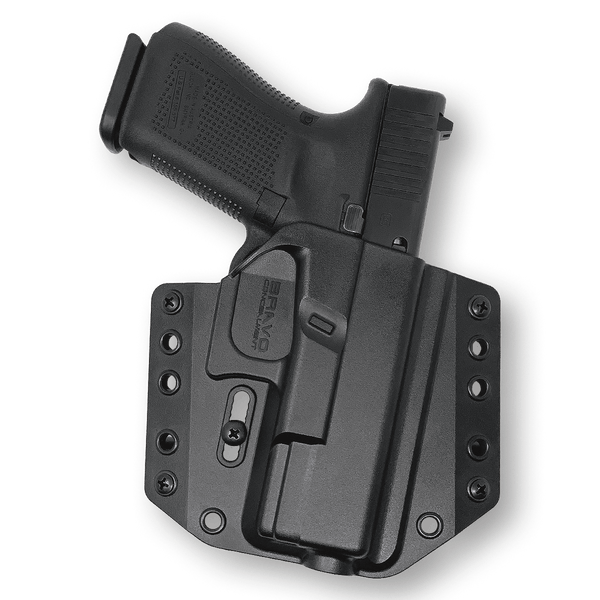
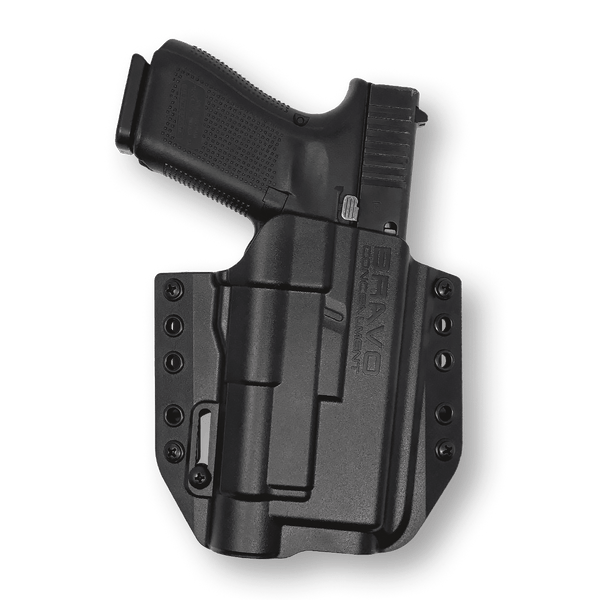
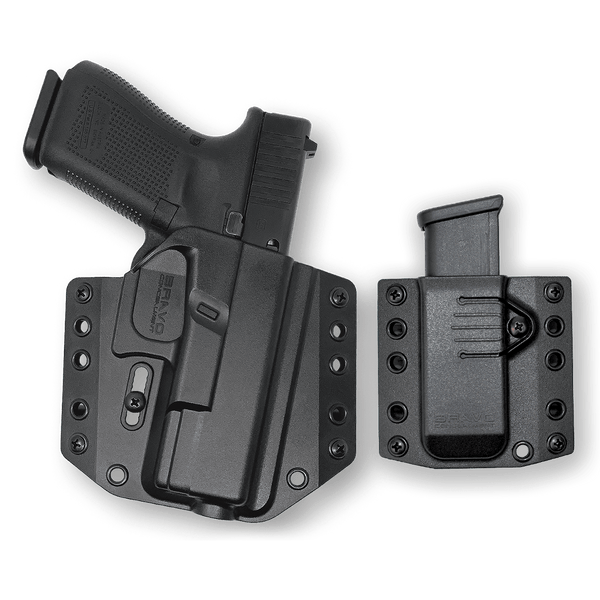

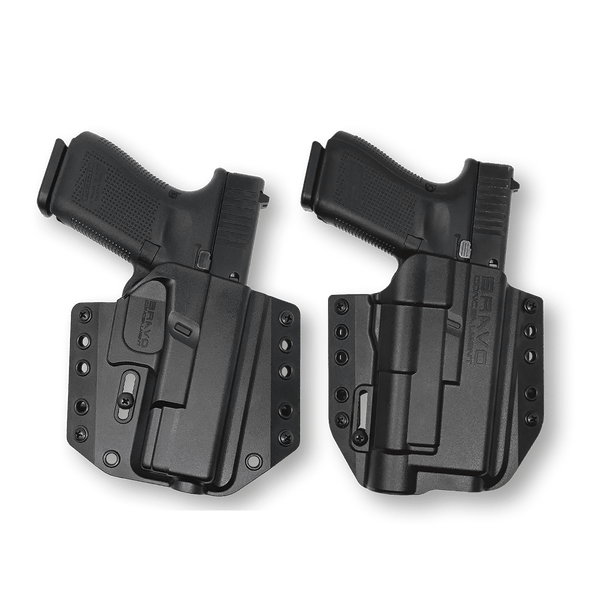
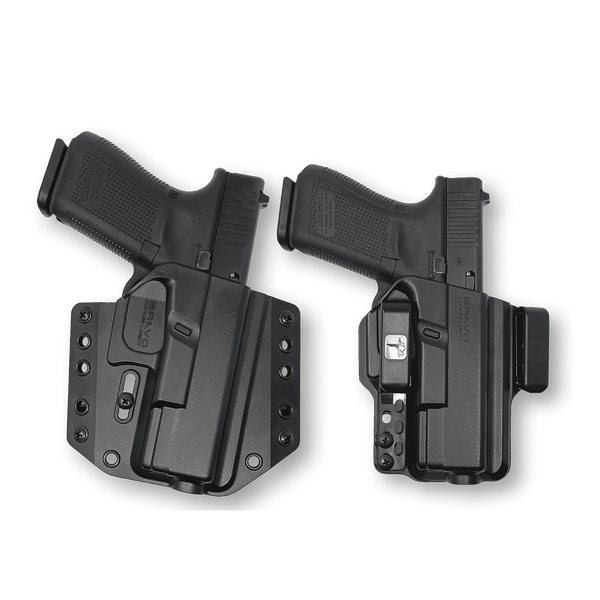
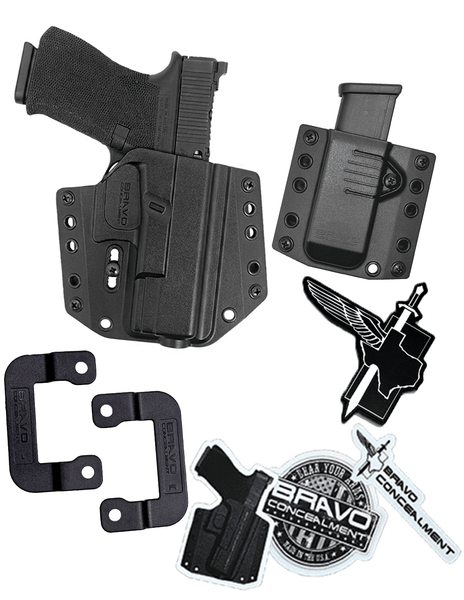
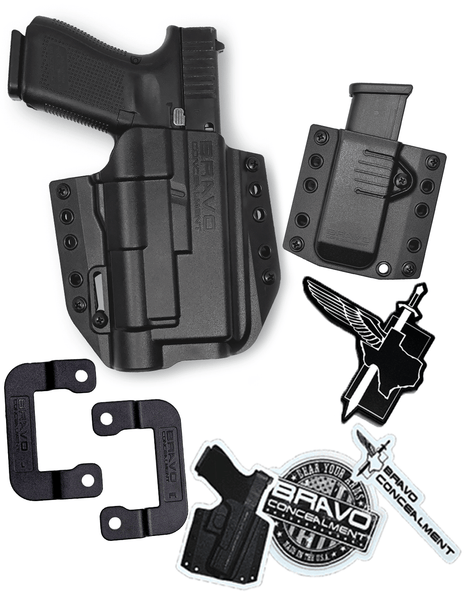
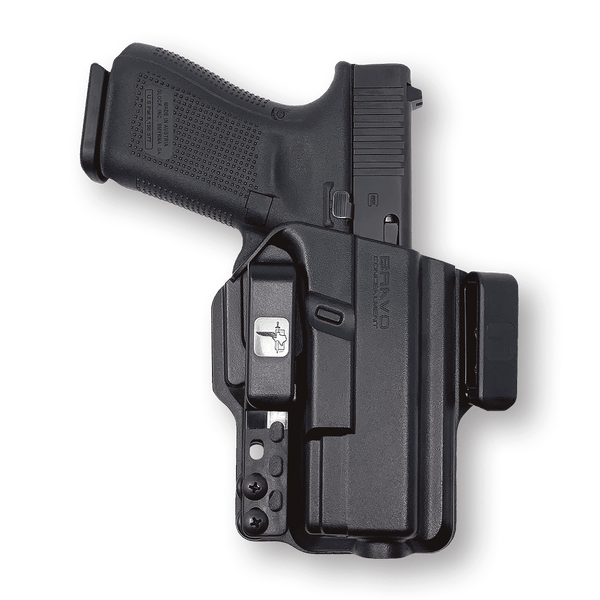
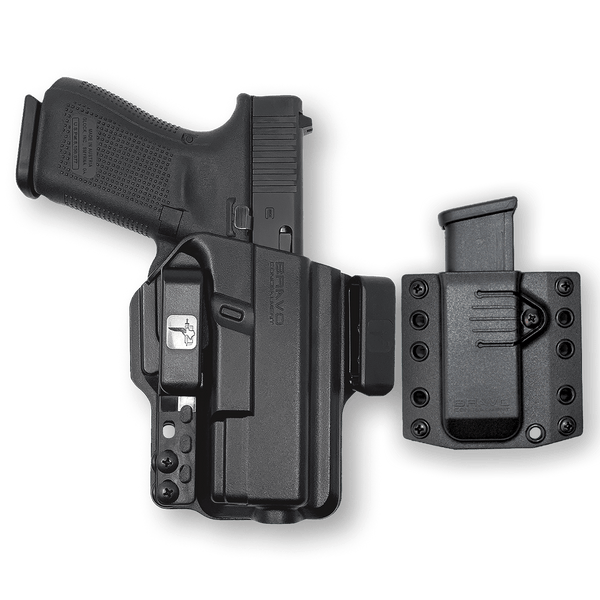
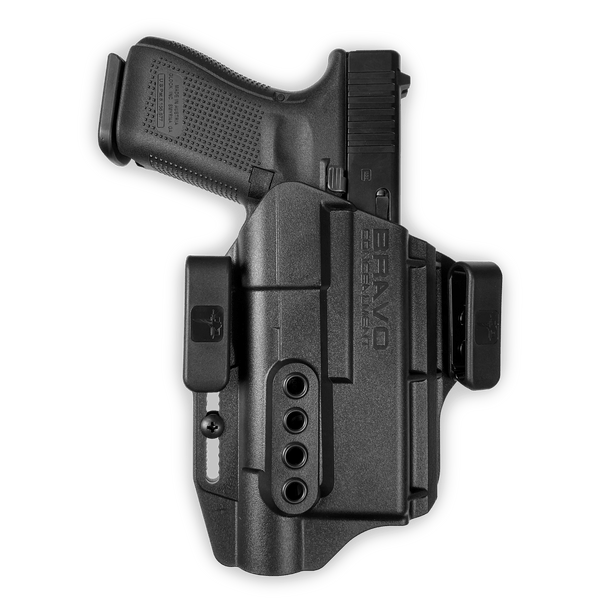
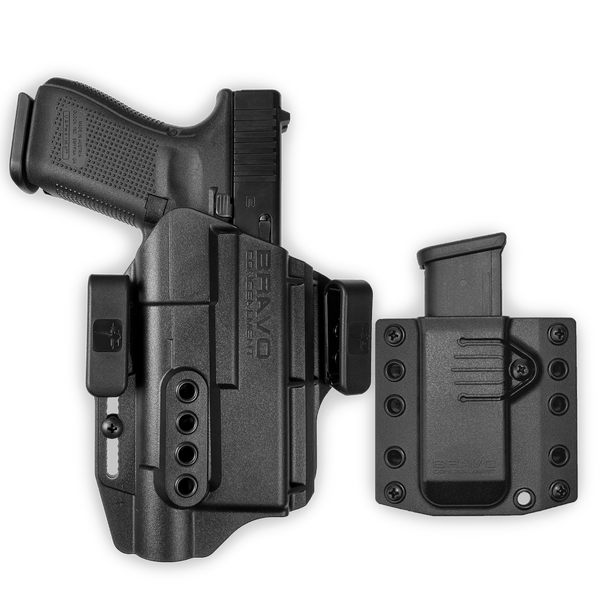
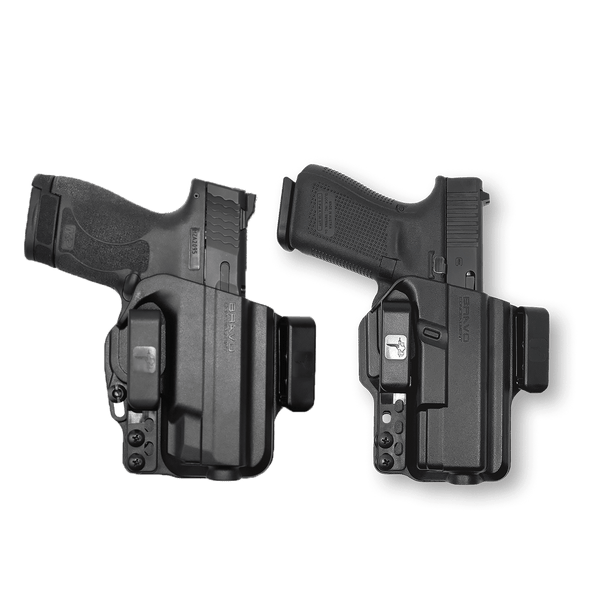
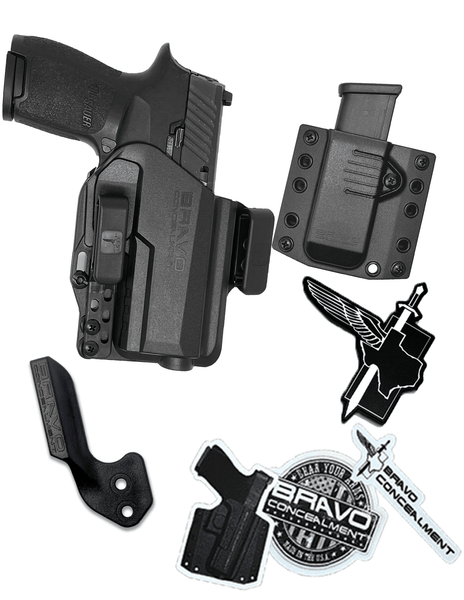

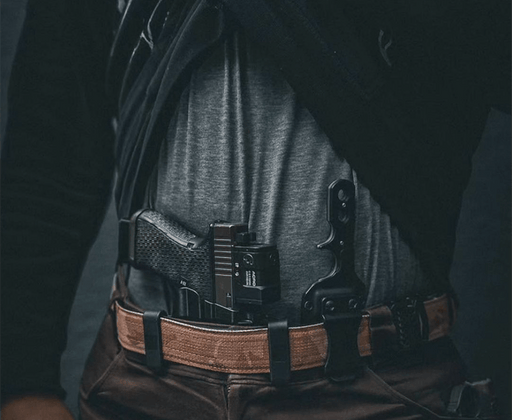
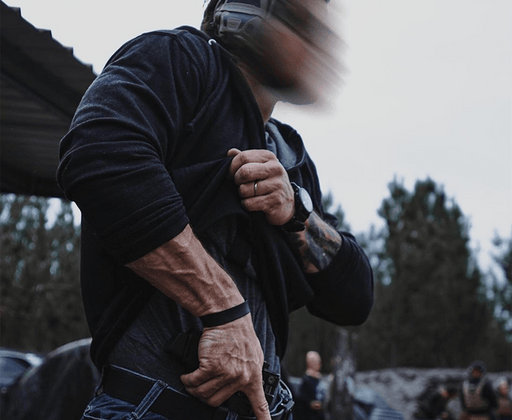
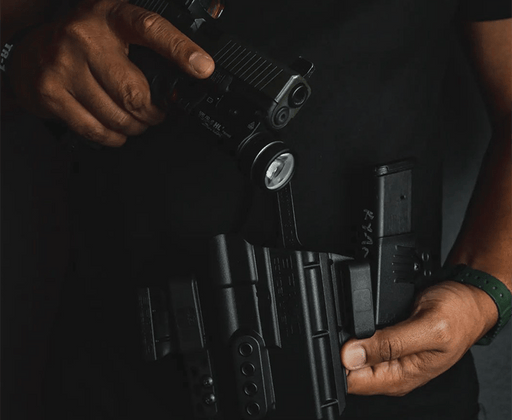
Leave a comment